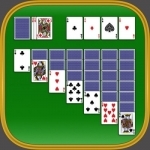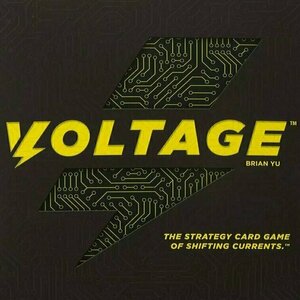
Stickman Racer Road Draw
Games
App Watch
Stickman Racer Road Draw is a sequel to the legendary game of survival, where to make incredible...
games

Lottery.ie
Utilities and News
App
Download the Official National Lottery app and make magic happen! Lotto, Daily Million,...

Tableau d'école pour iPhone et iPod : Ecrivez et dessinez en couleur, même sur vos photos !
Entertainment and Productivity
App
Want to make a drawing, play Tic Tac Toe? Need to quickly record a telephone number or code of the...

Us
Book
David Nicholls brings to bear all the wit and intelligence that graced ONE DAY in this brilliant,...

German Checkers
Games and Entertainment
App
German checkers follows the german rules (link to the rules inside the game). If you look for US...

Successful Key Account Management in a Week: Be a Brilliant Key Account Manager in Seven Simple Steps
Book
Key account management just got easier 'This little book is a real gem' Professor Malcolm McDonald...

Solitaire by MobilityWare
Games
App
Solitaire by MobilityWare is the ORIGINAL maker of Solitaire with Daily Challenges. We’ve made...

SportsTables League Manager
Sports and Utilities
App
SportsTables is a league table creation and management app for any kind of sport. It lets you...

Bet Data - Betting Tips App
Sports
App
Bet Data is the best app for soccer. It covers more than 70 leagues from 45+ countries and major...
Purple Phoenix Games (2266 KP) rated Voltage in Tabletop Games
Jan 8, 2022
Voltage is a competitive game for 2 players in which players are trying to be the first to earn 4 total points. To setup for the game, place the board between the two players. Take the double-sized Terminal blocks and place them on their corresponding spaces of the board. The starting orientation for the Terminal blocks should read + – – + horizontally across the board. Shuffle the deck of cards and deal 4 to each player. Each player selects a Score Marker and places it on the first space of their score track. Choose a starting player, and the game is ready to begin! Pictured below is the starting setup for a game.
Over a series of turns, players will be playing cards to their corresponding colored Terminals in an attempt to win the set. If the Terminal is set to a + then the player with the highest value will win the set. Alternately, if the Terminal is set to a – then the player with the lowest value will win the set. Cards are played to Terminals until a Terminal has a set of 5 total cards. The Terminal is then scored, the cards used are discarded, and the winning player earns a point. The game continues in this fashion until one player has earned 4 total points.
On your turn, you must perform one of these three actions: Play a card & draw a card, Play 2 cards, or Draw 2 cards. Simple enough, but the strategy is what makes this game. When playing cards to the different Terminals, there are a few placement rules to keep in mind. Of course, you may only play cards to the Terminal of the matching color. You are allowed to play cards on your side of the Terminal, or on your opponent’s side. Now to get to the actions themselves. If you choose to play a card and draw a card, you must do so in that order. If you choose to play 2 cards, you must play both cards on different colors – you cannot play both to the same Terminal. The last action, draw 2 cards, is self-explanatory.
The cards of the game are numbered from 1-3, and are of the 4 Terminal colors. There are 3 types of special cards: Bypass, Blown Fuse, and Transformer. A Bypass card allows you to move a card from your opponent’s side to your side of the Terminal, and a Blown Fuse allows you to remove a card from your opponent’s side completely from play. Both of these types of cards count toward the 5-card maximum of the Terminals, so use them wisely. A Transformer is identified by the card back – if the V logo is colored Yellow. When you draw a Transformer, you must then flip one of the Terminal blocks to its opposite side. Since the draw deck is always visible, you can see when a Transformer card is next, so that could help inform your strategy for your turn. The game continues in this fashion of alternating player turns until one player has earned 4 total points. They are declared the winner!
I have to say that the gameplay of Voltage really surprised me. I went into my first play expecting a light little game, and what I got was so much more. There really is a pretty decent strategic element to this game that caught me a little off guard at first. The gameplay itself seems simple – draw cards, play cards, win sets to earn points. But how you accomplish that is more challenging that it seems. The ability to play cards to your side or your opponent’s allows you to try to tip the scales in your favor. You can’t simply focus on your side alone, you need to keep tabs across the entire board to inform your next move. And then if your opponent draws a Transformer, they could just as easily reverse the polarity of that Terminal and now you’re on the wrong end! When playing 2 cards, they must be played to different colored Terminals, so how can you place your cards so they are most beneficial to you? Do you risk placing the big numbers right away in hopes of winning a + Terminal, or do you play lower-numbered cards in case that Terminal gets flipped? All things to consider throughout the game. Along with the strategy, one thing that I love about Voltage is that there really is no runaway winner each time – the direction of a set can literally change with one card, and neither player can really feel secure during the game. You have to anticipate your opponent’s moves while trying to complete sets that are currently favorable to you. That all being said, I guess there is a bit of a ‘take that’ element in the gameplay that might seem a little aggressive to some players, but that’s kind of just the nature of this head-to-head gameplay.
To touch on components, this game is pretty basic. The cards are nice quality, and the artwork is electrical and thematic. The board itself is nice and thick, and the spaces are all clearly marked. The Terminal blocks are probably my favorite components of this game. They are nice chunky plastic blocks, and the colors are bright neon colors – some of my favorites! For a game with such few components, the quality of them is appreciated.
After playing Voltage with Travis at The Table, I actually came home and found a copy for myself – that’s how much I liked it! I don’t think it’s my all-time favorite 2-player game yet, but it’s certainly working its way up the list…. If you’re in the market for a fast, yet strategic, 2-player game, I would highly recommend giving Voltage a try. The simplicity of the gameplay coupled with the vast strategic options makes for an engaging and entertaining game. Purple Phoenix Games gives this one an electrifying 9 / 12.
